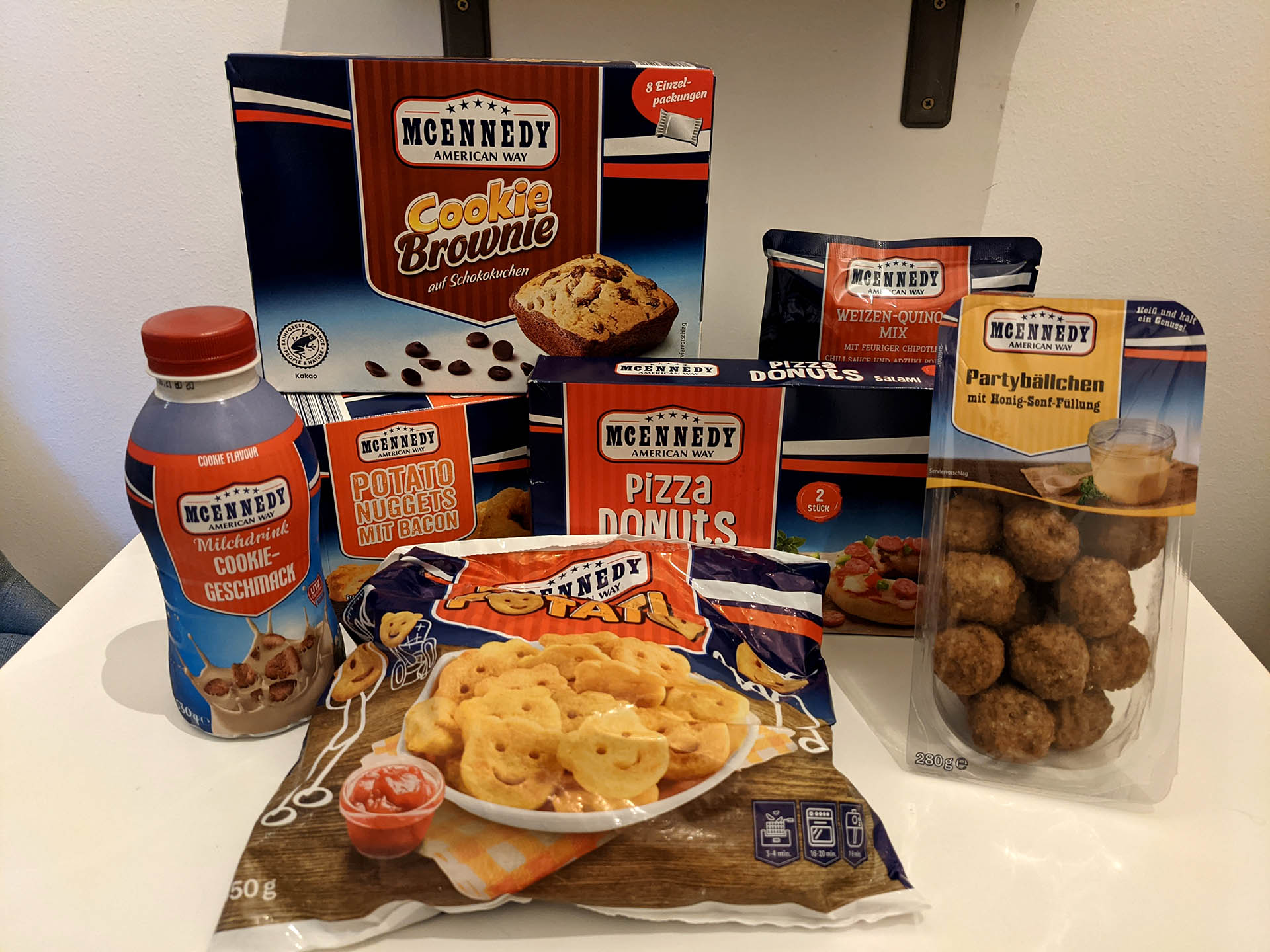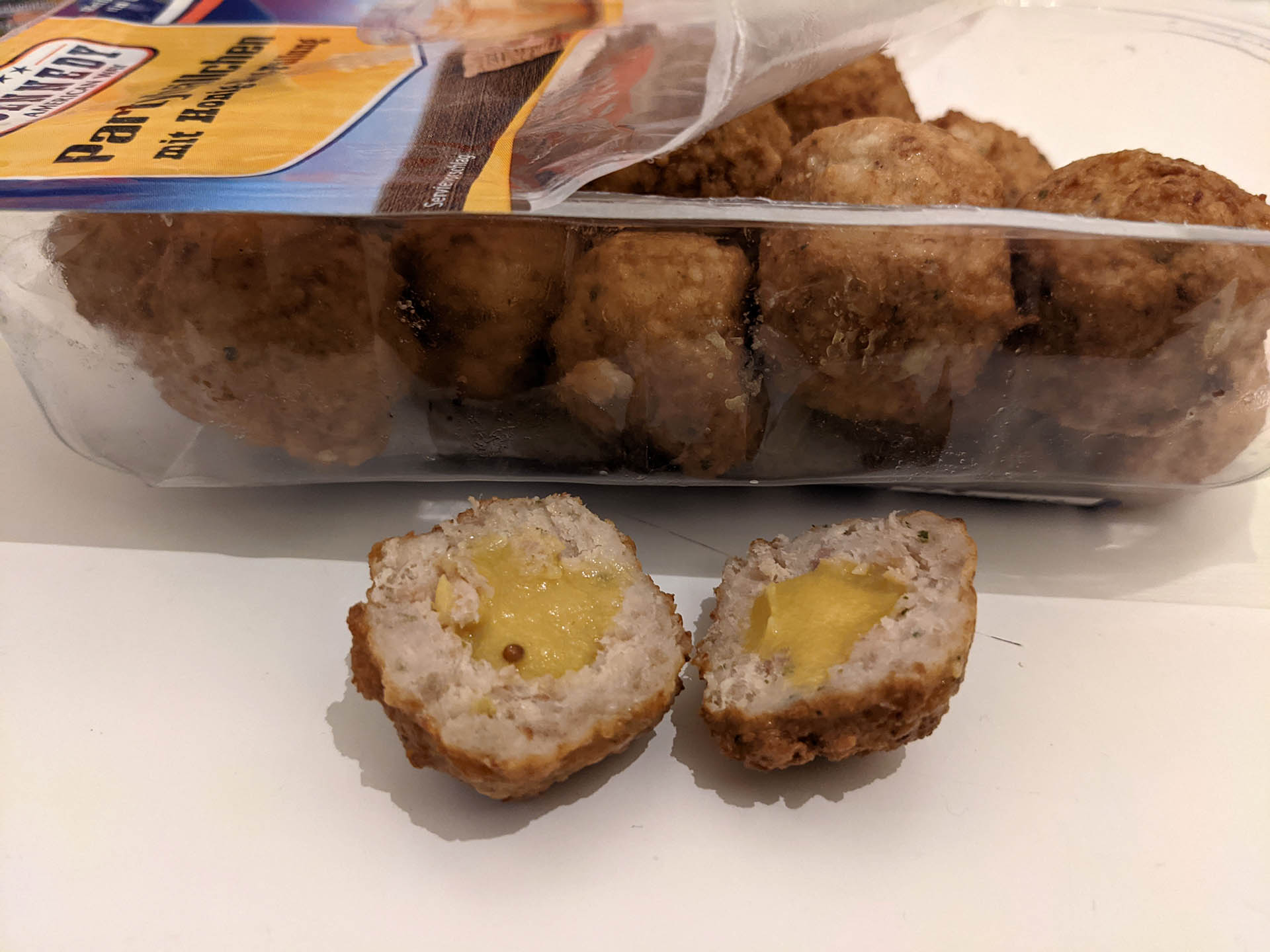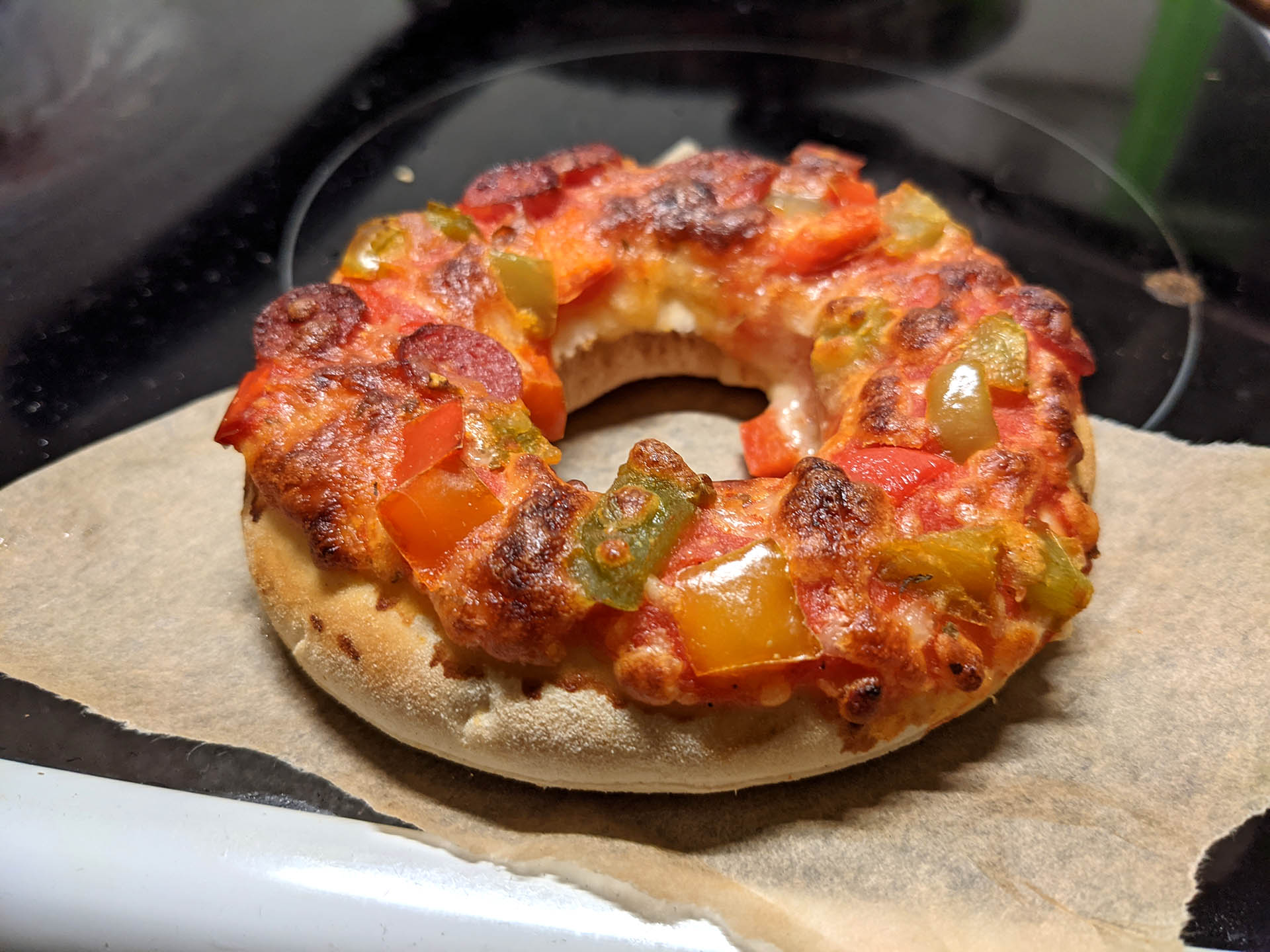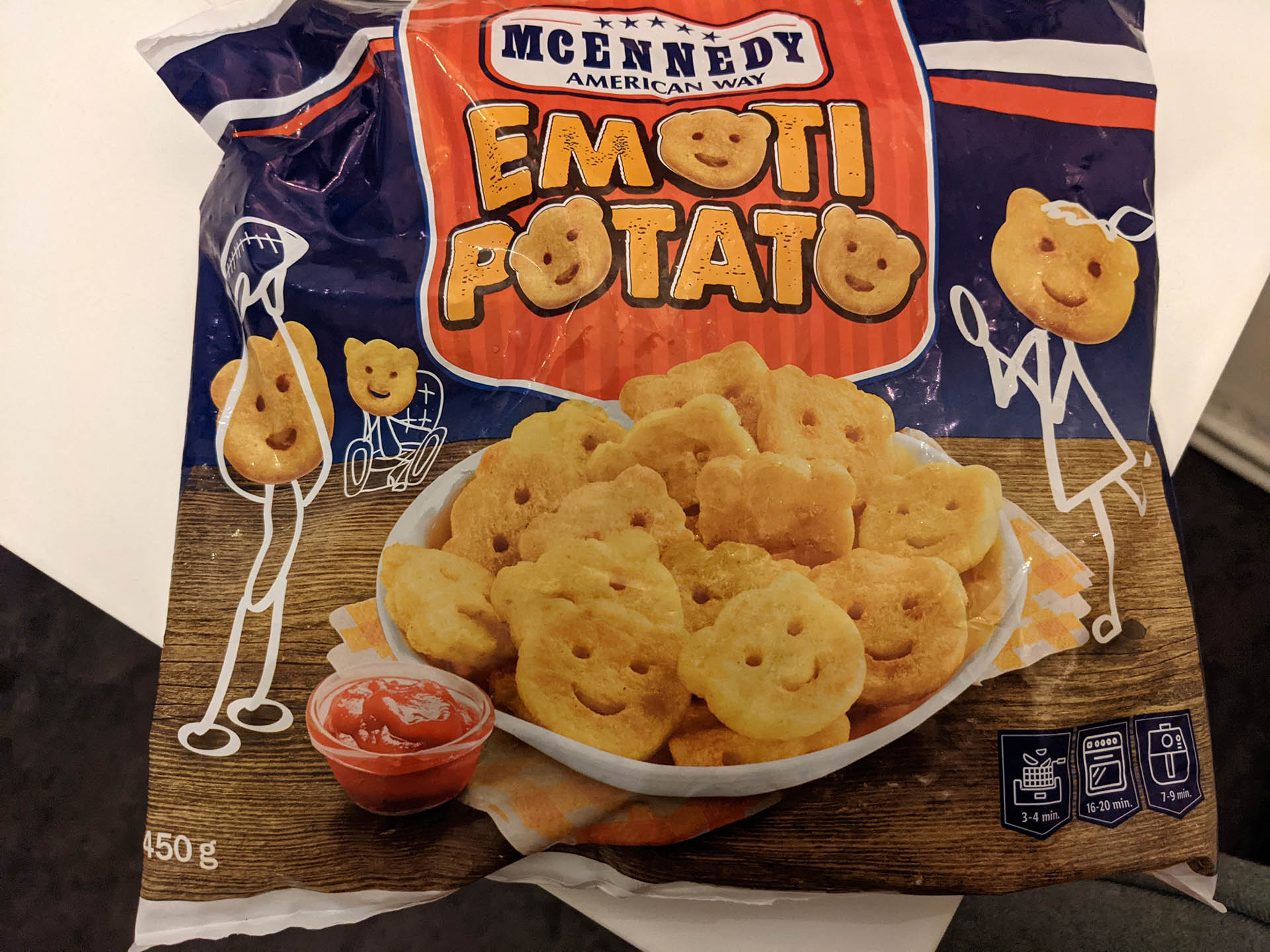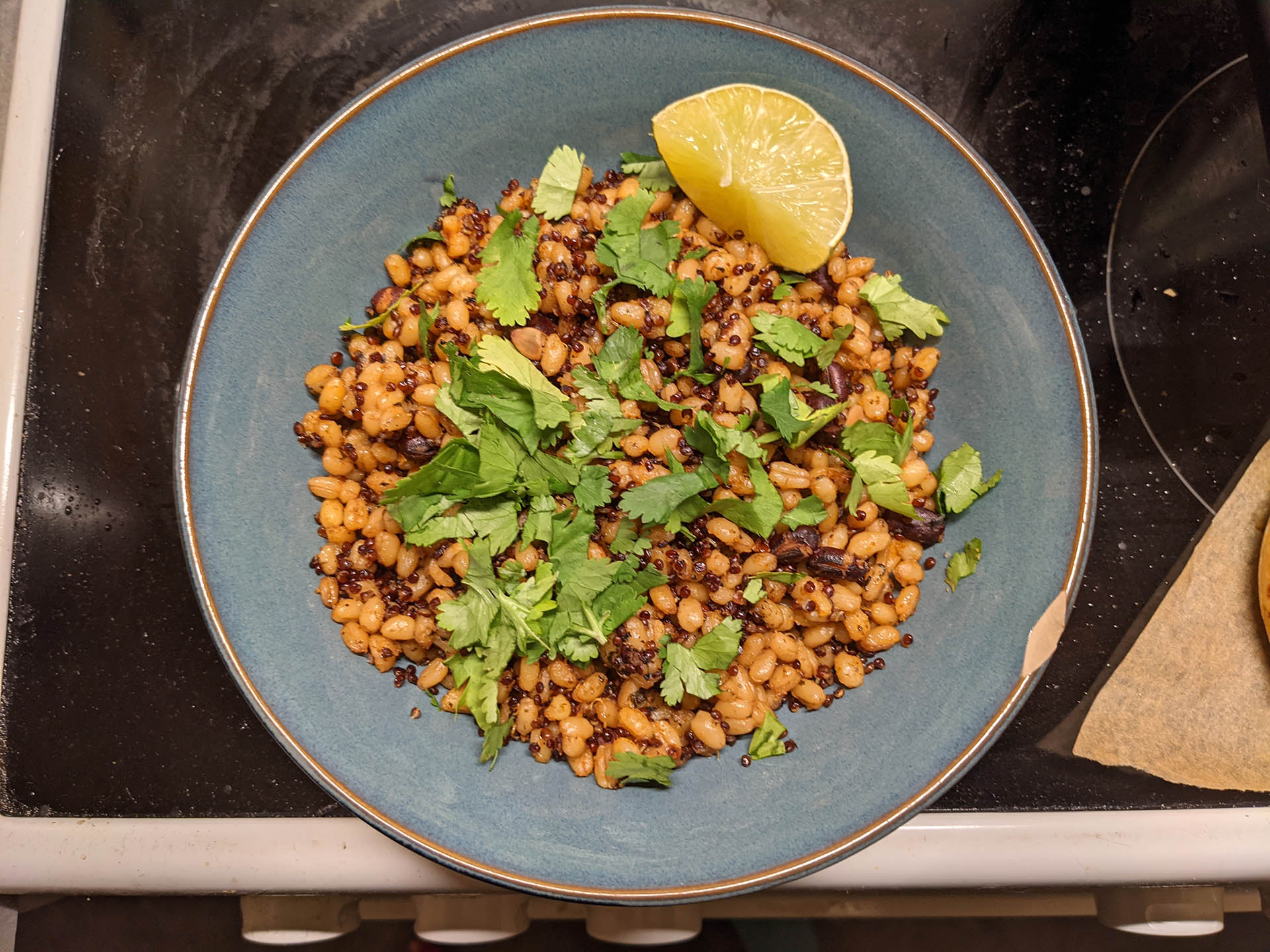A Taste Test Of German Supermarkets' Bizarro Versions Of American Foods
An expat living in Berlin heads to Lidl for America Week.
As an American living in Berlin, I no longer need to go far to find a taste of home. Gone are the days when I had to stuff my suitcase full of peanut butter and hot sauce at the end of every trip Stateside. The German capital of 2021 is a modern, increasingly international metropolis in which passable-to-great versions of poke, breakfast burritos, and Nashville hot chicken abound, and commercial products from Lucky Charms to LaCroix are just a quick online order away.
Supermarkets here, however, have yet to get the memo. Sold in "ethnic" aisles during special promotions, their so-called American food is less an accurate representation, more a warped reflection shaped by McDonald's, James Dean, and the Allied occupation. It's the edible equivalent of the novels of Karl May, a hugely popular 19th-century German author who wrote dozens of rollicking adventures set in the American West despite never having been there. In those books, as at German grocery chains, the U.S. is a fantastical and terrifying place, filled with outlaws, noble savages, and trans fats.
Aldi, which owns over 2,000 stores in the U.S. and should really know better, sells hot dogs in glass jars and squeeze tubes full of swirled-together ketchup and mayo under its "American" label. Edeka and Rewe, Germany's two largest retailers, carry a line of garlic- and banana-flavored grilling sauces called Nick the Easy Rider, and if you read the 19-page-long backstory on the brand's website you'll find out that Nick is a 50-year-old from Düsseldorf who, encouraged by his wife to do something for himself for once, takes a bucket-list road trip from San Francisco to the Grand Canyon on a rented Harley-Davidson, eating spare ribs and flirting with waitresses along the way.
But Nick's travails, glorious and bafflingly detailed though they may be, still pale in comparison to America Week. Brought to us by Lidl, the German mega-discounter that's been making its own inroads across the pond, this twice-yearly sales event involves dozens of red-white-and-blue products, none of which are actually manufactured in the U.S. and all of which bear the mysterious legend "McEnnedy American Way." A few are recognizable, like marshmallows, maple syrup, and fairly decent peanut butter. The rest, decidedly less so.
After nearly a decade in Berlin, I've seen many an America Week come and go. Yet somehow I've always been able to resist the call of McEnnedy... until now. Without further ado, a culinary portrait of the USA as extrapolated by a bunch of middle-aged businessmen from Stuttgart:
Milk Drink Cookie Flavor
Right off the bat, I have questions. Like: exactly what kind of cookie is this flavored milk supposed to resemble? On the bottle, there's a picture of a wan-looking, chipless caramel-colored disc that resembles no American dessert I've ever seen; a close read of the label reveals that it's a "cacao biscuit." In beverage form, this translates to faint hints of chocolate that are immediately overwhelmed by sugar and artificial vanilla. I have no frame of reference, so this could very well be what a cacao biscuit tastes like.
Honey Mustard Party Balls
Ah, yes, who among us hasn't sat down to watch the Super Bowl with a plateful of mustard-filled meat blobs? The package says, "Hot or cold, a pleasure!", which turns out to be a lie. Unheated, the party balls smell like an abattoir stocked with cat food, their interior a congealed yellow mass surrounded by pork mush. A few minutes in the oven improves the odor, but the filling still tastes more of thickening agents than anything else. I'm guessing all the stabilizers are to keep unsuspecting eaters from squirting hot mustard all over themselves and spoiling the party with an American-style lawsuit.
Salami Pizza Donuts
Think about it from a marketing standpoint: the word "donut" enjoys instant recognition in Germany thanks to Dunkin's colonization efforts, whereas "bagel" isn't as widespread for, uh, whatever reason. That's the only explanation I can come up with for the name of these pallid dough rings, which are obviously oversized Bagel Bites that nobody bothered to cut in half. Topped with cheese, bell peppers, and little bits of smoked salami, they're fine—one German friend favorably compares them to the "pizza baguettes" he used to eat at gas stations on family vacations—but I feel cheated, especially after I learn DiGiorno has just announced the creation of an honest-to-goodness deep-fried pizza doughnut (or DiGiornut). It seems even McEnnedy can't out-America America.
Emoti Potatoes
Emoji potatoes are a real American product, churned out by food conglomerate McCain. An "emoti," meanwhile, is some kind of bear-human hybrid with a penchant for outdated gender roles. On the bag, a boy emoti triumphantly hoists a football as a girl emoti swoons and an older male emoti, presumably the boy emoti's father, silently approves from an armchair. Dumped onto a baking sheet, the frozen potato faces display no recognizable personality traits, only the same unnerving rictus grin, over and over. At least they taste good. They're made by Belgians, who know their way around a fried potato, and the contrast between crispy outside and creamy interior is spot-on.
Bacon Potato Nuggets
These freezer snacks are exactly the same size, shape, and texture as Chicken McNuggets, but the pink slime has been replaced by an oddly dense, yet compellingly delicious, mixture of compressed potatoes and bacon bits. If McDonald's put these on its breakfast menu, they'd be a hit. I don't know why I'm surprised that the potato-based products are faring so well in this taste test.
Bulgur Quinoa Mix with Fiery Chipotle Sauce and Adzuki Beans
In between brainstorming all these amazing new fast food items, someone at Lidl must have pointed out that vegan grain bowls are also a thing Americans eat, resulting in the most vicious parody of one this side of Portlandia. The "fiery" seasoning barely tickles the bottom of the Scoville scale, which, okay, we're in a country where paprika-flavored chips count as piquant, but why does it all have to be so dry? Even after smothering the pre-cooked grains and legumes in sriracha, lime juice, and cilantro, I can't choke down more than a couple bites. Point taken: Stick to potatoes.
Cookie Brownie on Chocolate Cake
...And we're back to cookies, which McEnnedy still stubbornly fails to get right. How can three desserts add up to such a nothing of a product? A cakey chocolate-flavored moat surrounds an arid, crumbly "cookie" core, which, to give it the tiniest amount of credit, at least has chocolate chips this time. The individually wrapped snack bars are made by a French company, proving once and for all how little that country thinks of us and our sad excuse for food.
Conclusion
I end my America Week experiment bloated with fat, sugar, and questionable additives—in other words, feeling like a true American, but paradoxically very German at the same time. After all, just a few days later I spot the Party Balls in the refrigerator of one Frau Schmidt, a family friend in her 80s who, like Karl May for most of his life, has only experienced the U.S. through pop culture, news broadcasts, and secondhand reports.
As globalization continues apace and a new, more worldly generation of Germans takes her place, it stands to reason that McEnnedy and friends will gradually fade away, like Nick the Easy Rider motorcycling off into the Arizona sunset. I have to admit I'll miss them.
